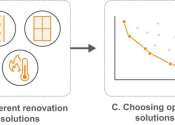Biofuels could help island nations survive a global catastrophe, study suggests
A major global catastrophe could disrupt trade in liquid fuels used to sustain industrial agriculture, impacting the food supply of island nations like New Zealand that depend on oil imports.
Mar 29, 2024
0
11









